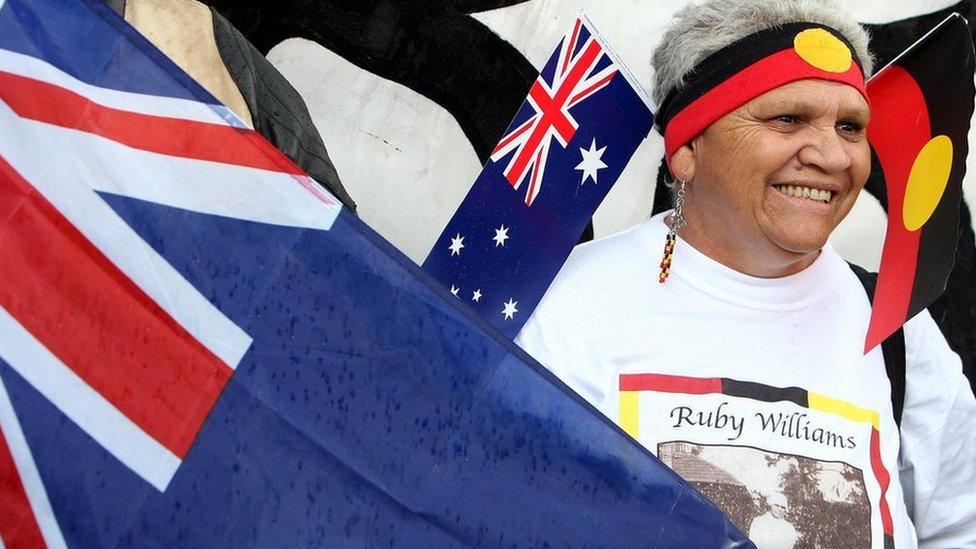Australian football jeers sound 'wake up' call on race
- Published
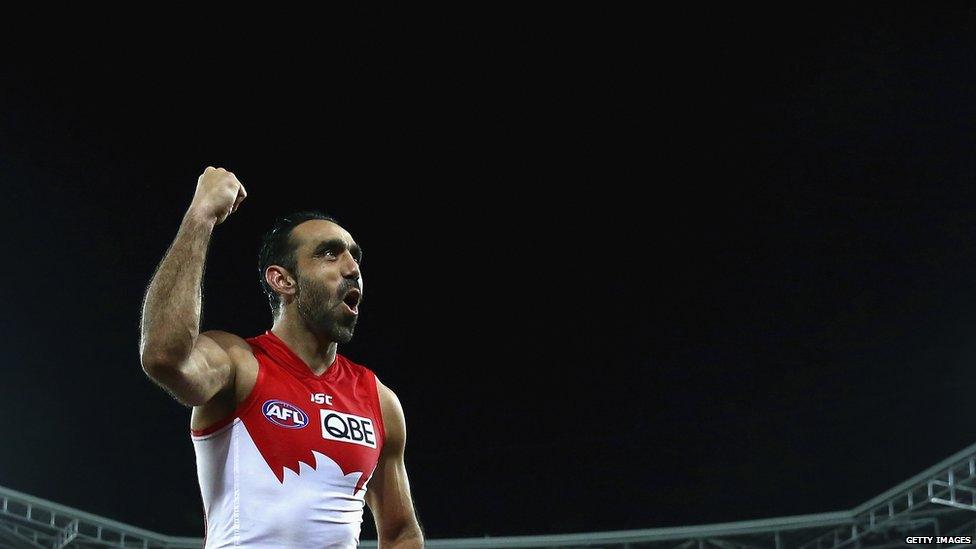
Footballer Adam Goodes has been a strong advocate for Indigenous Australians
Former Australian Liberal Party minister Fred Chaney remembers stopping by the side of the road in the Australian outback to listen to a radio report of Aboriginal sports star Cathy Freeman's gold medal win at the 2000 Sydney Olympics.
"A bunch of young Aboriginal people pulled up in a four-wheel-drive and asked if we needed help," he wrote recently. "We shared the triumph of the day."
Mr Chaney, a former Aboriginal Affairs Minister, says Aboriginal sports heroes like Freeman have played a huge role in Australia's journey towards reconciliation with its indigenous people.
But he says Australia has had a big "wake up call" over the relentless taunting by many spectators and commentators of Australian Football League (AFL) star and Indigenous Australian Adam Goodes.
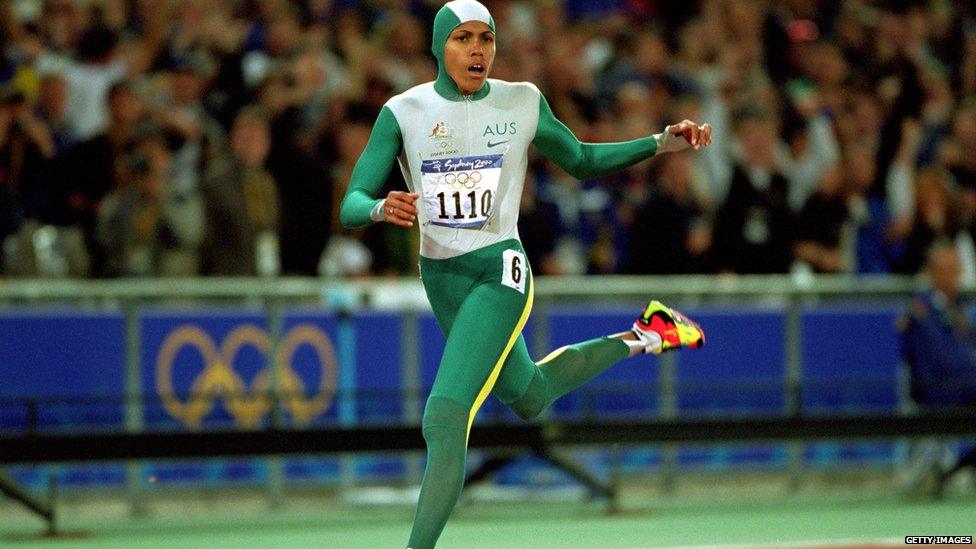
Freeman is one of Australia's most-loved sporting champions
Chaney says the row over Goodes goes to the heart of the ongoing tension where Indigenous Australians are praised for their sporting and cultural success but are criticised if they point to racism in the community or assert cultural pride.
"What Adam has done is to flush out an uncomfortable truth," Mr Chaney told the BBC.
"We like to think we're all equal but what we're talking about now is a much more conceptually difficult point of, how do we accommodate continuing difference within that equal society," he explains.
"For me, Aboriginal culture is a rich and wonderful part of Australia, but what we are seeing through Adam Goodes is a demand from some vocal sections of the media and community that Indigenous people 'get on with it, be just like us in every respect'," he says.
This sports mad country will be watching a packed stadium near Melbourne this Saturday night when Goodes returns to the field for his Sydney Swans team to play Victorian team Geelong.
He took a short break from the game last week because of the pressure associated with the race row.
Named Australian of the Year in 2014 for his sporting achievements and his work on Indigenous disadvantage and family violence issues, Goodes has been subject to constant jeers on the field and criticism off the field for speaking about racism.
Respected journalist Stan Grant, himself an Indigenous Australian, described the attacks as "howls of humiliation" .
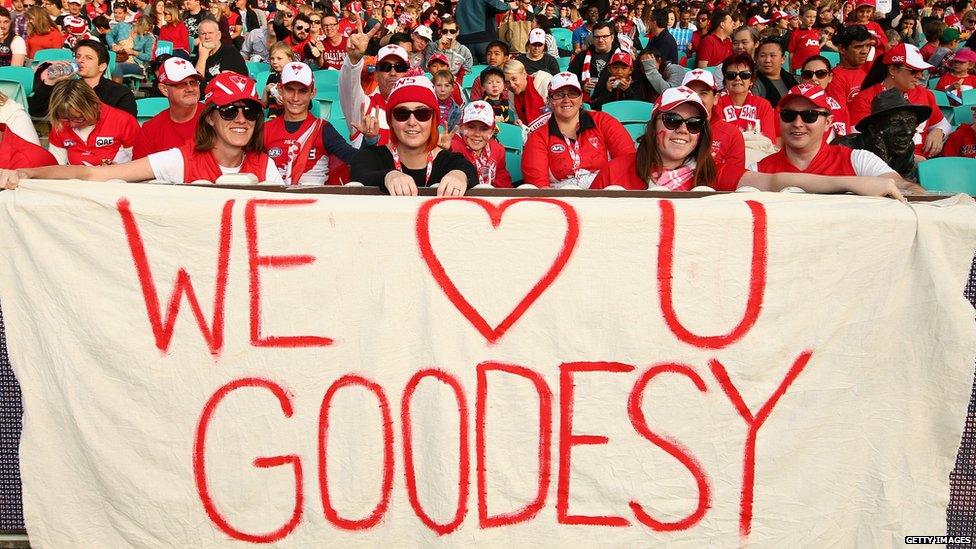
Sydney Swan fans and many in the broader community support Goodes
Goodes' distress over the reaction prompted an outpouring of support across the country in recent weeks.
Rival Richmond players donned Aboriginal 'Dreamtime' guernseys and ran through a big banner declaring 'No silent bystanders' for their match.
Swans fans and those from opposing club the Adelaide Crows gave Goodes a standing ovation ahead of the match he didn't play last weekend.
Australian celebrities, businesses and non-government organisations have all spoken out in support of Goodes, while billionaire casino operator James Packer said he was "ashamed" as an Australian to see the way spectators were treating the champion footballer, a two-time winner of the AFL's highest accolade, the Brownlow Medal.
There have been many reasons given for the jeers, including Goodes last year pointing out a 13-year-old spectator for calling him an "ape".
But the booing and criticism built up after he performed a 'war cry' dance during the May Indigenous round of the AFL, which celebrates the contribution of Indigenous players to the sport.
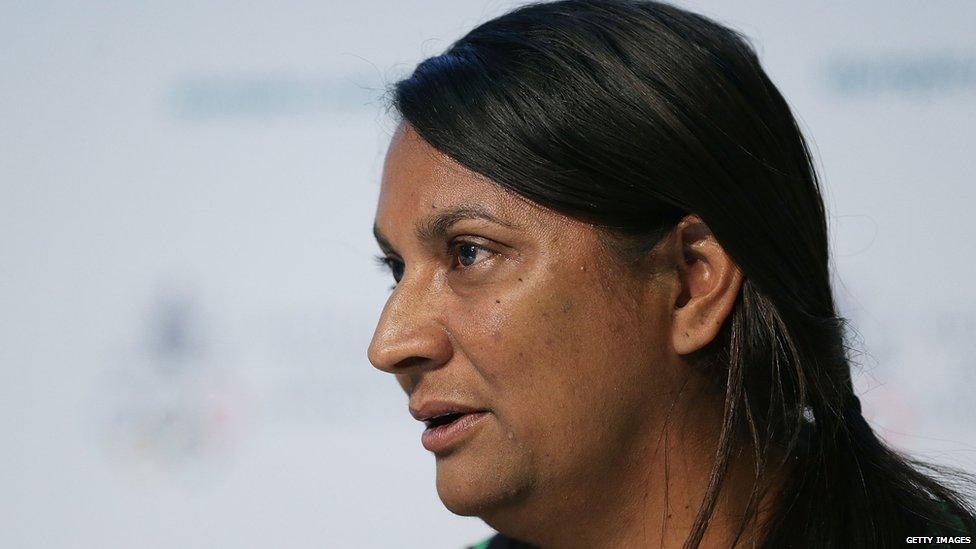
Senator Peris says the nation must face the truth about Aboriginal Australians
Some, including Australian Test cricketer Shane Warne, say booing is just part of elite sport. But the Sydney Swans have no doubts.
"Adam Goodes has been booed relentlessly because he's Aboriginal and because he's had the courage to stand and speak about matters close to his heart," said Swans chairman Andrew Pridham.
"The Swans position on this matter is very clear - you cannot be a little bit racist."
Nova Peris, the first Indigenous Australian to win an Olympic gold medal, and now a senator in the Australian parliament, says the saga shows Australia "has a problem with the truth of Aboriginal people".
"My grandfather had chains around his neck," Peris said on the weekend, while talking about how several generations of her family were taken away from their communities by government authorities.
"You can only move forward when you acknowledge the truth and right now this country has a problem with the truth of Aboriginal people," she said.
"That is the truth of this country. When [Goodes] spoke out the world said, 'Get back in your box, mate'."
Marie McInerney is a Melbourne-based writer.
- Published29 July 2015
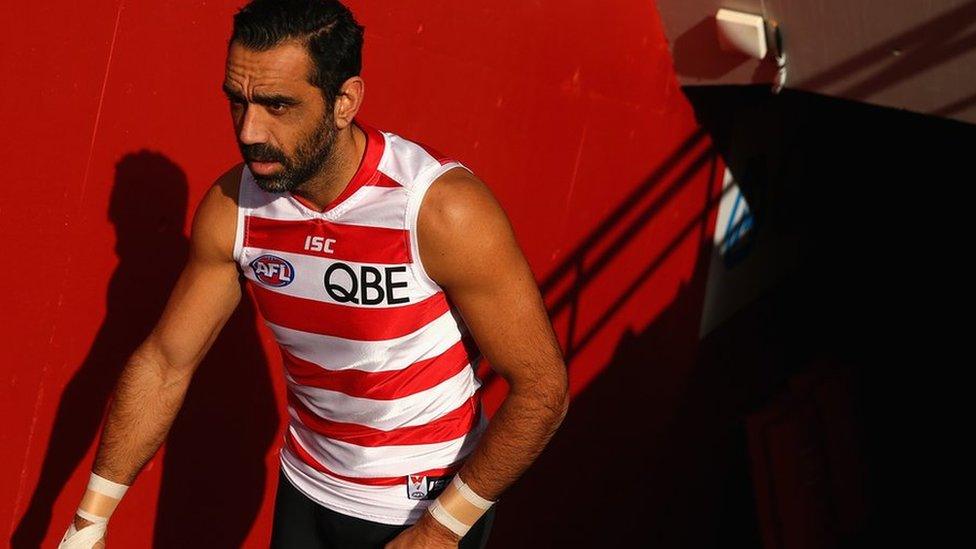
- Attribution
- Published4 August 2015
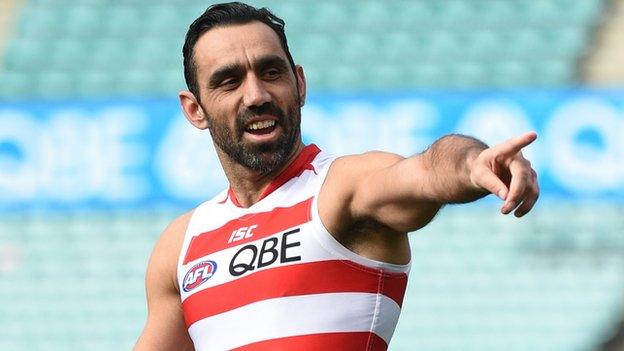
- Published4 August 2015
